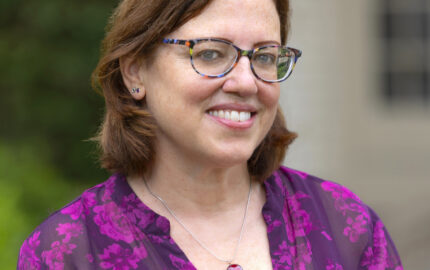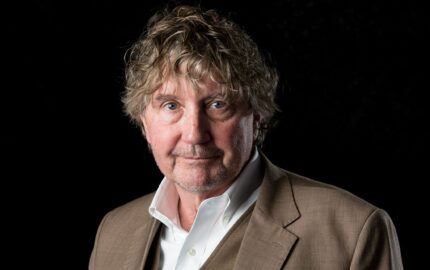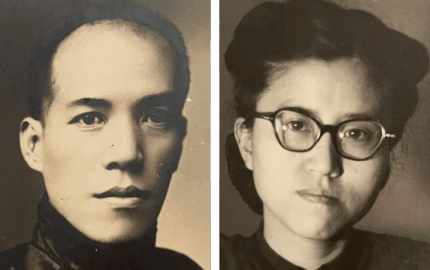CAMBRIDGE, Mass. – The Nieman Foundation for Journalism at Harvard has selected 23 journalists from the United States and abroad to join the 72nd class of Nieman Fellows. The group includes print and multimedia reporters and editors; radio and television journalists; photographers; book authors; a filmmaker and a columnist.
Nieman Foundation Curator Bob Giles notes that members of the incoming class reflect the changing news industry: “This year, we received applications from — and awarded fellowships to — more freelance journalists than ever before. They are highly talented professionals who by choice or circumstance don’t hold staff positions with established news organizations. In response to their needs and those of all the Nieman Fellows, we will introduce a yearlong multimedia curriculum in the fall, designed to teach new media skills in what is becoming an increasingly competitive market.”
Established in 1938, the Nieman Foundation administers the oldest midcareer fellowship program for journalists in the world. Working journalists of accomplishment and promise are selected to come to Harvard University for a year of study, seminars and special events. More than 1,300 journalists from 89 countries have received Nieman Fellowships.
U.S. Nieman Fellows in the Class of 2010 and their areas of interest:
Martha Bebinger, state house reporter, WBUR in Boston, will study health care spending and the politics of trying to curb health care costs.
Monica Campbell, a freelance journalist based in San Francisco, will study how criminal organizations create cultures of fear and fuel corruption, with a special focus on Mexico and ways the press can effectively navigate the current climate of violence there. She is the Louis Stark Nieman Fellow. The fellowship honors the memory of the New York Times reporter who was a pioneer in the field of labor reporting.
Jeff Howe, contributing editor, Wired magazine, will examine the recent growth and historical origins of crowdsourcing, defined by Howe himself in a 2006 Wired article as the use of the Internet for cooperative efforts among large groups of otherwise disconnected people. Howe is especially interested in researching the use of crowdsourcing for the development of sustainable journalism models.
Beth Macy, families beat reporter, The Roanoke Times, will study the impact of the aging baby boomer population as well as financial, social and political solutions to the long-term care crisis.
Liz Mineo, reporter, The MetroWest Daily News in Framingham, Mass., will study the social, economic, political and legal implications of the recent waves of Latin American immigrants to the United States, with a special focus on Brazilian immigrants. Mineo is the Donald W. Reynolds Nieman Fellow in Community Journalism.
Lisa Mullins, anchor/senior producer, Public Radio International’s “The World,” will conduct a real-time critical assessment of the resurgence of diplomacy in U.S. foreign policy during the first 16 months of the Obama administration.
Alissa Quart, author, contributing editor/columnist, Columbia Journalism Review, and contributing writer, Mother Jones, will study how the increased influence and ubiquity of visual media, from cable TV to Flickr, from Facebook to Google images, is changing journalism, memory, and everyday life.
Kevin Sites, a freelance multimedia journalist and author based in Los Angeles, will examine the challenges of maintaining public interest if the war-reporting paradigm shifts from combat-centric to collateral damage. He will also explore options for sustainable, independent Web-based reporting.
Anita Snow, Havana bureau chief, The Associated Press, will examine how totalitarianism can co-opt entire societies into participating in their own repression, and the question of how new democratic governments should deal with acts committed by individuals who collaborated with the old regime.
Marcela Valdes, a freelance writer from Annapolis, Md., will study the historical roots of contemporary Latino and Latin American culture, with a focus on how film and literature grapple with the political and artistic legacies of the 1970s, including dictatorships, forced immigration and magical realism. Valdes is the 2010 Arts and Culture Nieman Fellow.
Shankar Vedantam, national science reporter, The Washington Post, will study solutions to collective action problems and explore how online social networks might solve public policy challenges. He also will study how perceptions of intraracial differences influence education, politics and the criminal justice system.
Nieman Fellow in Global Health Reporting and his areas of interest:
Hopewell Rugoho-Chin’ono (Zimbabwe), documentary film director/news producer, Television International, Zimbabwe, will examine the impact of poor health on Africa’s prosperity and the relationship between poverty and mental illness. He is the Robert Waldo Ruhl Nieman Fellow.
International Nieman Fellows and their areas of interest:
Audra Ang (China), correspondent, The Associated Press, will study how new media like Twitter and blogs are shaping activism and nationalism in China. Ang is the Atsuko Chiba Nieman Fellow. Her fellowship honors the memory of Atsuko Chiba, a 1968 Nieman Fellow.
Maria Balinska (United Kingdom), editor, World Current Affairs Radio, BBC, will explore the future of reporting in the digital age in the wider context of how the Internet is changing society. She will also study contemporary America with a particular emphasis on how the media are affecting policy and politics. Balinska is the Ruth Cowan Nash Nieman Fellow.
Ibrahim Barzaq (Palestinian Territories), correspondent, The Associated Press, will study history and political science to better understand how leaders in Israel, the United States and Palestine make decisions. He is the Barry Bingham Jr. Nieman Fellow.
Janet Heard (South Africa), executive editor, Weekend Argus, will study post-liberation politics, leadership and power. She also will examine the battle to retain democratic principles and a moral compass in governments globally, with a particular interest in Africa. Heard’s fellowship is supported by the Nieman Society of Southern Africa.
Joana Gorjão Henriques (Portugal), deputy editor, Público, will study the ways in which minorities in interracial societies influence intellectual circles and leading institutions, including the media. Henriques’ fellowship is funded by the Luso-American Foundation and the Calouste Gulbenkian Foundation.
Jana Juginovic (Canada), director of news and programming, CTV News Channel and executive producer, CTV News Specials, will study the impact of 24-hour news on public policy. Juginovic is the Martin Wise Goodman Canadian Nieman Fellow. Goodman was a 1962 Nieman Fellow.
Gary Knight (United Kingdom), photographer and editor, VII Photo Agency and Dispatches Quarterly, will examine the interconnectivity of some of the broad issues facing mankind, including the economy, the environment, foreign policy, human rights and primary health care. He also plans to research business studies pertaining to the mass media and will study Asian societies and history. He is the Carroll Binder Nieman Fellow.
Alejandra Matus (Chile), freelance journalist for The Clinic, Paula magazine, Terra magazine. and The Miami Herald, will study political science and technology to understand the impact social inequality and the concentration of economic power have on democracy, as well as the possibilities and limitations of new media technologies. She is a John S. and James L. Knight Foundation Latin American Nieman Fellow.
Boris Muñoz (Venezuela), editor in chief, Exceso magazine, will study the impact of new media on journalism as well as the influence of globalization on political processes in Latin America. He is a John S. and James L. Knight Foundation Latin American Nieman Fellow.
James Reynolds (United Kingdom), China correspondent, BBC News, plans to investigate how wars end and will seek an answer to the question “Does violence work?”
Sonali Samarasinghe (Sri Lanka), freelance journalist, will examine how the international community, sanctions, comments by world leaders, and other forms of external political pressure affect errant countries, particularly those that support state-sponsored terror. She specifically will research and analyze these issues in the context of her native Sri Lanka.
The U.S. fellows were selected by Marie Danziger; lecturer in public policy and director of the Communications Program at Harvard Kennedy School; Louise Kiernan, a senior editor at the Chicago Tribune and a 2005 Nieman Fellow; and Michael Skoler, founder of Public Insight Journalism and a 1993 Nieman Fellow. Bob Giles, Nieman Foundation curator and a 1966 Nieman Fellow, chaired the committee.
The Nieman Global Health Reporting Fellows were chosen by Linda Harrar, a documentary producer, director and writer, whose films focus on global health and the environment, and Stefanie Friedhoff, special projects manager for the Nieman Foundation and a 2001 Nieman Fellow. Bob Giles, Nieman Foundation curator, was chair of the committee.
The Nieman Fellow in Arts and Culture Reporting was selected by Jack Megan, director of the Office for the Arts at Harvard University, and Alicia Anstead, editor of Inside Arts magazine, freelance arts writer and the 2008 Arts and Culture Nieman Fellow. Nieman Foundation Curator Bob Giles chaired the committee.
In addition to administering the Nieman Fellowship program, the Nieman Foundation publishes the quarterly magazine Nieman Reports, the nation’s oldest magazine devoted to a critical examination of the practice of journalism, and is home to the Nieman Journalism Lab, which identifies emerging business models and best practices in journalism in the digital media age. Additionally, the foundation runs both the Nieman Program on Narrative Journalism and the Nieman Watchdog Project, which encourages reporters and editors to monitor and hold accountable those who exert power in all aspects of public life.
Nieman Foundation Curator Bob Giles notes that members of the incoming class reflect the changing news industry: “This year, we received applications from — and awarded fellowships to — more freelance journalists than ever before. They are highly talented professionals who by choice or circumstance don’t hold staff positions with established news organizations. In response to their needs and those of all the Nieman Fellows, we will introduce a yearlong multimedia curriculum in the fall, designed to teach new media skills in what is becoming an increasingly competitive market.”
Established in 1938, the Nieman Foundation administers the oldest midcareer fellowship program for journalists in the world. Working journalists of accomplishment and promise are selected to come to Harvard University for a year of study, seminars and special events. More than 1,300 journalists from 89 countries have received Nieman Fellowships.
U.S. Nieman Fellows in the Class of 2010 and their areas of interest:
Martha Bebinger, state house reporter, WBUR in Boston, will study health care spending and the politics of trying to curb health care costs.
Monica Campbell, a freelance journalist based in San Francisco, will study how criminal organizations create cultures of fear and fuel corruption, with a special focus on Mexico and ways the press can effectively navigate the current climate of violence there. She is the Louis Stark Nieman Fellow. The fellowship honors the memory of the New York Times reporter who was a pioneer in the field of labor reporting.
Jeff Howe, contributing editor, Wired magazine, will examine the recent growth and historical origins of crowdsourcing, defined by Howe himself in a 2006 Wired article as the use of the Internet for cooperative efforts among large groups of otherwise disconnected people. Howe is especially interested in researching the use of crowdsourcing for the development of sustainable journalism models.
Beth Macy, families beat reporter, The Roanoke Times, will study the impact of the aging baby boomer population as well as financial, social and political solutions to the long-term care crisis.
Liz Mineo, reporter, The MetroWest Daily News in Framingham, Mass., will study the social, economic, political and legal implications of the recent waves of Latin American immigrants to the United States, with a special focus on Brazilian immigrants. Mineo is the Donald W. Reynolds Nieman Fellow in Community Journalism.
Lisa Mullins, anchor/senior producer, Public Radio International’s “The World,” will conduct a real-time critical assessment of the resurgence of diplomacy in U.S. foreign policy during the first 16 months of the Obama administration.
Alissa Quart, author, contributing editor/columnist, Columbia Journalism Review, and contributing writer, Mother Jones, will study how the increased influence and ubiquity of visual media, from cable TV to Flickr, from Facebook to Google images, is changing journalism, memory, and everyday life.
Kevin Sites, a freelance multimedia journalist and author based in Los Angeles, will examine the challenges of maintaining public interest if the war-reporting paradigm shifts from combat-centric to collateral damage. He will also explore options for sustainable, independent Web-based reporting.
Anita Snow, Havana bureau chief, The Associated Press, will examine how totalitarianism can co-opt entire societies into participating in their own repression, and the question of how new democratic governments should deal with acts committed by individuals who collaborated with the old regime.
Marcela Valdes, a freelance writer from Annapolis, Md., will study the historical roots of contemporary Latino and Latin American culture, with a focus on how film and literature grapple with the political and artistic legacies of the 1970s, including dictatorships, forced immigration and magical realism. Valdes is the 2010 Arts and Culture Nieman Fellow.
Shankar Vedantam, national science reporter, The Washington Post, will study solutions to collective action problems and explore how online social networks might solve public policy challenges. He also will study how perceptions of intraracial differences influence education, politics and the criminal justice system.
Nieman Fellow in Global Health Reporting and his areas of interest:
Hopewell Rugoho-Chin’ono (Zimbabwe), documentary film director/news producer, Television International, Zimbabwe, will examine the impact of poor health on Africa’s prosperity and the relationship between poverty and mental illness. He is the Robert Waldo Ruhl Nieman Fellow.
International Nieman Fellows and their areas of interest:
Audra Ang (China), correspondent, The Associated Press, will study how new media like Twitter and blogs are shaping activism and nationalism in China. Ang is the Atsuko Chiba Nieman Fellow. Her fellowship honors the memory of Atsuko Chiba, a 1968 Nieman Fellow.
Maria Balinska (United Kingdom), editor, World Current Affairs Radio, BBC, will explore the future of reporting in the digital age in the wider context of how the Internet is changing society. She will also study contemporary America with a particular emphasis on how the media are affecting policy and politics. Balinska is the Ruth Cowan Nash Nieman Fellow.
Ibrahim Barzaq (Palestinian Territories), correspondent, The Associated Press, will study history and political science to better understand how leaders in Israel, the United States and Palestine make decisions. He is the Barry Bingham Jr. Nieman Fellow.
Janet Heard (South Africa), executive editor, Weekend Argus, will study post-liberation politics, leadership and power. She also will examine the battle to retain democratic principles and a moral compass in governments globally, with a particular interest in Africa. Heard’s fellowship is supported by the Nieman Society of Southern Africa.
Joana Gorjão Henriques (Portugal), deputy editor, Público, will study the ways in which minorities in interracial societies influence intellectual circles and leading institutions, including the media. Henriques’ fellowship is funded by the Luso-American Foundation and the Calouste Gulbenkian Foundation.
Jana Juginovic (Canada), director of news and programming, CTV News Channel and executive producer, CTV News Specials, will study the impact of 24-hour news on public policy. Juginovic is the Martin Wise Goodman Canadian Nieman Fellow. Goodman was a 1962 Nieman Fellow.
Gary Knight (United Kingdom), photographer and editor, VII Photo Agency and Dispatches Quarterly, will examine the interconnectivity of some of the broad issues facing mankind, including the economy, the environment, foreign policy, human rights and primary health care. He also plans to research business studies pertaining to the mass media and will study Asian societies and history. He is the Carroll Binder Nieman Fellow.
Alejandra Matus (Chile), freelance journalist for The Clinic, Paula magazine, Terra magazine. and The Miami Herald, will study political science and technology to understand the impact social inequality and the concentration of economic power have on democracy, as well as the possibilities and limitations of new media technologies. She is a John S. and James L. Knight Foundation Latin American Nieman Fellow.
Boris Muñoz (Venezuela), editor in chief, Exceso magazine, will study the impact of new media on journalism as well as the influence of globalization on political processes in Latin America. He is a John S. and James L. Knight Foundation Latin American Nieman Fellow.
James Reynolds (United Kingdom), China correspondent, BBC News, plans to investigate how wars end and will seek an answer to the question “Does violence work?”
Sonali Samarasinghe (Sri Lanka), freelance journalist, will examine how the international community, sanctions, comments by world leaders, and other forms of external political pressure affect errant countries, particularly those that support state-sponsored terror. She specifically will research and analyze these issues in the context of her native Sri Lanka.
The U.S. fellows were selected by Marie Danziger; lecturer in public policy and director of the Communications Program at Harvard Kennedy School; Louise Kiernan, a senior editor at the Chicago Tribune and a 2005 Nieman Fellow; and Michael Skoler, founder of Public Insight Journalism and a 1993 Nieman Fellow. Bob Giles, Nieman Foundation curator and a 1966 Nieman Fellow, chaired the committee.
The Nieman Global Health Reporting Fellows were chosen by Linda Harrar, a documentary producer, director and writer, whose films focus on global health and the environment, and Stefanie Friedhoff, special projects manager for the Nieman Foundation and a 2001 Nieman Fellow. Bob Giles, Nieman Foundation curator, was chair of the committee.
The Nieman Fellow in Arts and Culture Reporting was selected by Jack Megan, director of the Office for the Arts at Harvard University, and Alicia Anstead, editor of Inside Arts magazine, freelance arts writer and the 2008 Arts and Culture Nieman Fellow. Nieman Foundation Curator Bob Giles chaired the committee.
In addition to administering the Nieman Fellowship program, the Nieman Foundation publishes the quarterly magazine Nieman Reports, the nation’s oldest magazine devoted to a critical examination of the practice of journalism, and is home to the Nieman Journalism Lab, which identifies emerging business models and best practices in journalism in the digital media age. Additionally, the foundation runs both the Nieman Program on Narrative Journalism and the Nieman Watchdog Project, which encourages reporters and editors to monitor and hold accountable those who exert power in all aspects of public life.


